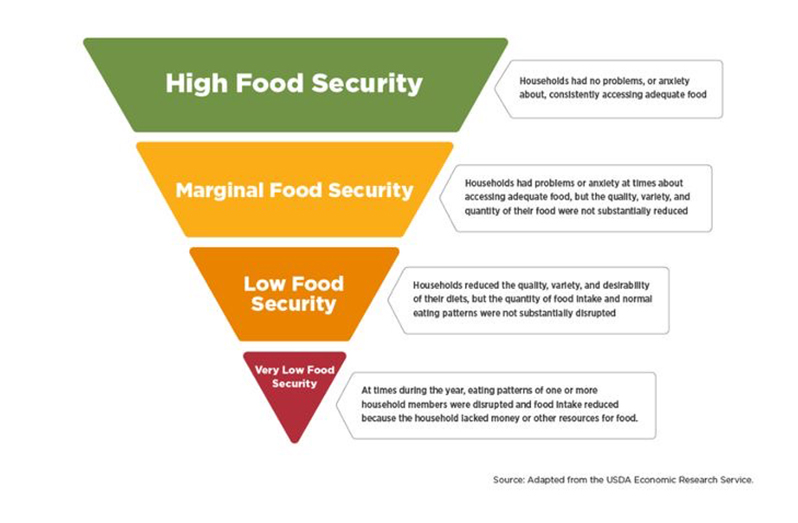I ALWAYS like to highlight the irony of economic growth with the realities of social issues. Within the last 100 years, human beings have discovered more wealth than any other civilisation. Yet still, there is still a staggering amount of conflict, inequality and poverty among us. Have you ever been worried about where your next meal is coming from? Do you worry about whether you can afford your next meal? If you answered no, then you should consider yourself lucky and privileged. Why? Even decades after the industrial revolution, many human beings still do not have basic necessities such as food.
Food Insecurity is defined as people not having enough food to eat or unaware of how they will get their next meal. It is important to note that this can happen to any human being. According to Healthy People 2030, 13.8 million households were experiencing food insecurity around the year 2020. We often label it as a personal failure or downfall, but it is more so a deep-rooted systemic issue. Most people simply cannot afford to purchase food due to unemployment, poverty and even discrimination. There are many underlying factors that cause this, and some may even be interconnected.
 I think the world is filled with too many resources for people to still be hungry. We should be able to prioritise access where there is none and improve on existing avenues that are available. This should be a collective effort by civil society and the state. Food Insecurity leads to a lack of nutritional food and benefits for people. A high rise in Food Insecurity means a high number of unhealthy citizens. Hunger is an obvious effect of food insecurity. However, it is not limited or subjected to that alone. The lack of food may have physical effects on the body, but it can also be very emotional and mentally challenging for many people.
I think the world is filled with too many resources for people to still be hungry. We should be able to prioritise access where there is none and improve on existing avenues that are available. This should be a collective effort by civil society and the state. Food Insecurity leads to a lack of nutritional food and benefits for people. A high rise in Food Insecurity means a high number of unhealthy citizens. Hunger is an obvious effect of food insecurity. However, it is not limited or subjected to that alone. The lack of food may have physical effects on the body, but it can also be very emotional and mentally challenging for many people.
The “Food Justice” movement seeks to improve universal access to nutritional and affordable food for all. This is a global call for awareness and action against food insecurity. I will discuss the content of this movement in a future column. The National Breakfast Programme is a great initiative to help to tackle instances of food insecurity in Guyana. Non-governmental organisations such as Food for the Poor also provide resources and supplies countrywide to improve access to food. I am using this platform to encourage more people and local organisations to contribute in some way towards this phenomenon. Even if it means checking in on your neighbours next door to see if their children have enough healthy lunches for their school week, that is better than nothing at all.



.jpg)











